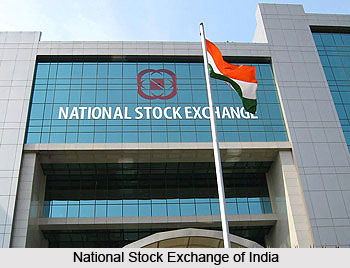 National Stock Exchange was set up with the agenda of bringing about a change in the securities markets in India. The National Stock Exchange (NSE) operates a nation-wide, electronic market, offering trading in Capital Market, Derivatives Market and Currency Derivatives segments including equities, equities based derivatives, Currency futures and options, equity based ETFs, Gold ETF and Retail Government Securities. The NSE network today stretches to more than 1,500 locations in the country and supports more than 2, 30,000 terminals. With more than 10 asset classes in offering, NSE has taken many initiatives to strengthen the securities industry and provides several new products like Mini Nifty, Long Dated Options and Mutual Fund Service System. Responding to market needs, NSE has introduced services like DMA, FIX capabilities, co-location facility and mobile trading to cater to the evolving need of the market and various categories of market participants.
National Stock Exchange was set up with the agenda of bringing about a change in the securities markets in India. The National Stock Exchange (NSE) operates a nation-wide, electronic market, offering trading in Capital Market, Derivatives Market and Currency Derivatives segments including equities, equities based derivatives, Currency futures and options, equity based ETFs, Gold ETF and Retail Government Securities. The NSE network today stretches to more than 1,500 locations in the country and supports more than 2, 30,000 terminals. With more than 10 asset classes in offering, NSE has taken many initiatives to strengthen the securities industry and provides several new products like Mini Nifty, Long Dated Options and Mutual Fund Service System. Responding to market needs, NSE has introduced services like DMA, FIX capabilities, co-location facility and mobile trading to cater to the evolving need of the market and various categories of market participants.
Formation of NSE
The National Stock Exchange of India Limited has its genesis in the report of the High Powered Study Group on Establishment of New Stock Exchanges. It recommended promotion of a National Stock Exchange by financial institutions (FIs) to provide access to investors from all across the country on an equal footing. Based on the recommendations, NSE was promoted by leading Financial Institutions at the behest of the Government of India and was incorporated in November 1992 as a tax-paying company unlike other stock exchanges in the country.
Objectives of NSE:
The NSE was set-up with the main objectives of:
* Establishing a nation-wide trading facility for equities, debt instruments and hybrids;
* Ensuring equal access to investors all over the country through an appropriate communication network;
* Providing a fair, efficient and transparent securities market to investors using electronic trading systems;
* Enabling shorter settlement cycles and book entry settlements systems, and,
* Meeting the current international standards of securities markets.
Corporate Structure of NSE
NSE is one of the first de-mutualised stock exchanges in the country, where the ownership and management of the Exchange is completely divorced from the right to trade on it. Though the impetus for its establishment came from policy makers in the country, it has been set up as a public limited company, owned by the leading institutional investors in the country. From day one, NSE has adopted the form of a demutualised exchange - the ownership, management and trading is in the hands of three different sets of people. NSE is owned by a set of leading financial institutions, banks, insurance companies and other financial intermediaries and is managed by professionals, who do not directly or indirectly trade on the Exchange. This has completely eliminated any conflict of interest and helped NSE in aggressively pursuing policies and practices within a public interest framework.
The NSE model however, does not preclude, but in fact accommodates involvement, support and contribution of trading members in a variety of ways. Its Board comprises of senior executives from promoter institutions, eminent professionals in the fields of law, economics, accountancy, finance, taxation, etc, public representatives, nominees of SEBI and one full time executive of the Exchange. While the Board deals with broad policy issues, decisions relating to market operations are delegated by the Board to various committees constituted by it. Such committees include representatives from trading members, professionals, the public and the management. The day-to-day management of the Exchange is delegated to the Managing Director who is supported by a team of professional staff.
NSE has made its global presence felt with cross-listing arrangements, including license agreements covering benchmark indexes for U.S. and Indian equities with CME Group and has also signed a Memorandum of Understanding (MOU) with Singapore Exchange (SGX) to cooperate in the development of a market for India-linked products and services to be listed on SGX. The two exchanges also will look into a bilateral securities trading link to enable investors in one country to seamlessly trade on the other countrys exchange. With more than 10 asset classes in offering, NSE has taken many initiatives to strengthen the securities industry and provides several new products like Mini Nifty, Long Dated Options and Mutual Fund Service System. Responding to market needs, NSE has introduced services like DMA, FIX capabilities, co-location facility and mobile trading to cater to the evolving need of the market and various categories of market participants.




















